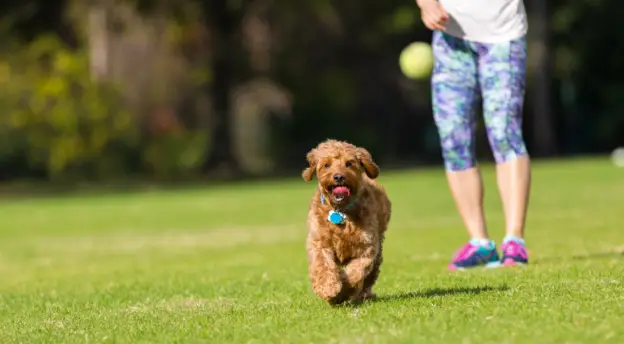Objective
To provide a structured program that promotes student engagement, emotional well-being, and social skills through interactive games and activities with therapy dogs.
Week 1: Introduction to Therapy Dogs and Safety
- Objective: Build familiarity and trust between students and the therapy dog, and establish safety guidelines.
- Activities:
- Meet & Greet: Introduce the dog and its handler to the group.
- Dog Safety 101: Teach students how to approach, pet, and interact safely.
- Name Game: Students take turns introducing themselves to the dog and observing its reactions.
- Simple Commands: Learn basic commands (sit, stay) with the handler’s guidance.
Week 2: Building Trust and Connection
- Objective: Encourage bonding and understanding of the dog’s behavior.
- Activities:
- Follow the Leader: Students lead the dog through a small obstacle course with the handler’s help.
- Treat and Greet: Practice giving the dog treats as a reward for positive interactions.
- Paw Painting: Use washable, non-toxic paint to create paw prints on paper as keepsakes.
- Dog Observation Journal: Students write or draw what they notice about the dog’s body language.
Week 3: Cooperative Games
- Objective: Foster teamwork and social interaction among students.
- Activities:
- Fetch Relay: Students take turns throwing a ball or toy for the dog to fetch.
- Tunnel Time: Guide the dog through a pop-up tunnel while students cheer it on.
- Group Sit Command: Collaboratively give the dog commands, focusing on teamwork.
- Emotion Cards: Students show cards with different emotions (happy, sad, etc.), and discuss how the dog might react to each.
Week 4: Mindfulness and Calming Exercises
- Objective: Use therapy dog interactions to promote relaxation and mindfulness.
- Activities:
- Quiet Petting Circle: Students take turns calmly petting the dog in a serene environment.
- Guided Breathing with the Dog: Practice deep breathing while observing the dog’s calm behavior.
- Read to the Dog: Students read aloud to the dog in a judgment-free zone.
- Sensory Awareness Walk: Take the dog on a short walk while discussing what they hear, see, and feel.
Week 5: Problem-Solving and Creativity
- Objective: Encourage creative thinking and collaboration through games with the dog.
- Activities:
- Hide and Seek: Hide treats or toys for the dog to find with the students’ help.
- Create a Trick: Students brainstorm and practice teaching the dog a new trick.
- Story Time Creation: Write or draw a story featuring the dog as the main character.
- Puzzle Time: Use interactive dog puzzles while students cheer the dog on.
Week 6: Celebration and Reflection
- Objective: Celebrate achievements, strengthen bonds, and reflect on the experience.
- Activities:
- Talent Show: Students showcase the tricks or games they practiced with the dog.
- Thank You Cards: Create cards or artwork to thank the therapy dog and handler.
- Memory Collage: Compile photos, paw prints, or stories from the course into a group project.
- Reflection Circle: Share how working with the therapy dog has impacted them emotionally and socially.
Materials Needed
- Dog treats and toys (balls, ropes, etc.)
- Obstacle course equipment (cones, tunnels, etc.)
- Art supplies (paper, markers, non-toxic paint)
- Emotion cards or flashcards
- Dog-safe puzzles
Key Considerations
Maintain a calm, supportive environment for both the dog and participants.
Ensure all activities are supervised by a certified therapy dog handler.
Tailor activities to accommodate the dog’s temperament and the students’ needs.
